HAITI | Who controls Haiti? The Oligarchs? The Gangs? The People? or US/Canada?
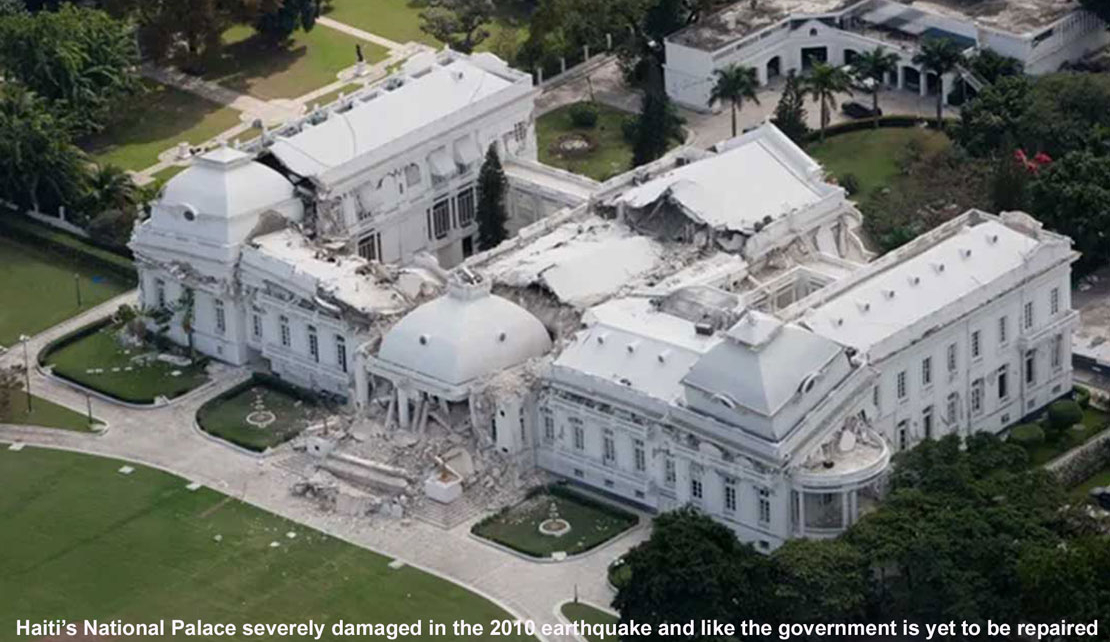
MONTEGO BAY, Jamaica, April 14, 2024 - The enigmatic island of Haiti, nestled within the vibrant tapestry of the Caribbean, stands as a testament to resilience amidst turmoil of monumental proportions.
A nation rich in spirit, culture,and natural resources, Haiti's socio-political landscape is a labyrinth of complexity, a puzzle that demands careful scrutiny to comprehend fully.
This narrative seeks to unfold the layers that have led to Haiti being labeled a failed state by academics, political scientists, and observers worldwide.
The country's journey through dictatorships, coups, and a succession of crises paints a picture of a resilient people persisting against the odds.
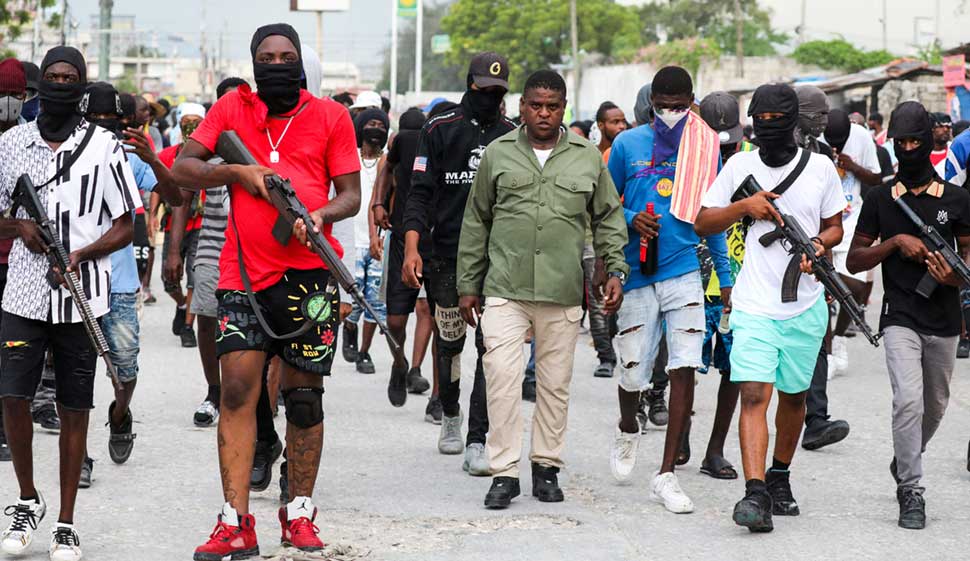
Established through a decree, this nine-member council represents a broad political spectrum, offering a beacon of hope for a nation yearning for stability and sovereignty.
My concern however, is whether the CARICOM solution has taken into account the approximate 15 member oligarch to include the rich white families, movers and shakers, who finance Haiti’s paramilitary gangs that strategically terrorize the populace to keep them in line.
The foundation of this council was laid in Kingston, Jamaica, on March 11, where a diverse group of Haitian stakeholders congregated, heralding the possibility of a new dawn. The council's primary mission is ambitious yet clear: to steer Haiti back towards democratic legitimacy, stability, and the dignified functioning of its state institutions.
Yet, as history has shown, the path to redemption is fraught with challenges. The Transitional Presidential Council finds itself at the helm of a nation that has seen its democratic fabric torn apart by years of governance turmoil starting with the 2004 Aristide coup engineered by the United States, Canada and France.

However, one cannot help but ponder whether this new initiative can break the cycle of failed governance structures that have plagued Haiti for decades. The quest for stability in Haiti is more than a political maneuver; it is a cry for dignity and peace from the heart of the Caribbean.
This introduction to the socio-political scenario of Haiti aims to set the stage for a deeper exploration into the intricacies of its history, the current landscape, and the prospect of a brighter future through the lens of serious journalism.
As we venture further into this story, we shall examine the pivotal moments and decisions that have shaped Haiti's destiny, scrutinizing the roles played by both domestic and international actors in this ongoing saga.
As we delve deeper into Haiti's historical context, it becomes evident that the nation's struggles are not merely the result of internal discord but are intricately tied to a history of external intervention and exploitation.
Haiti, the first Black republic to gain independence in 1804, has long been the subject of international intrigue, often paying a high price for its freedom and sovereignty.
The legacy of dictatorship and political instability has left deep scars, further complicated by foreign occupations and interventions that have shaped the country's socio-political landscape.
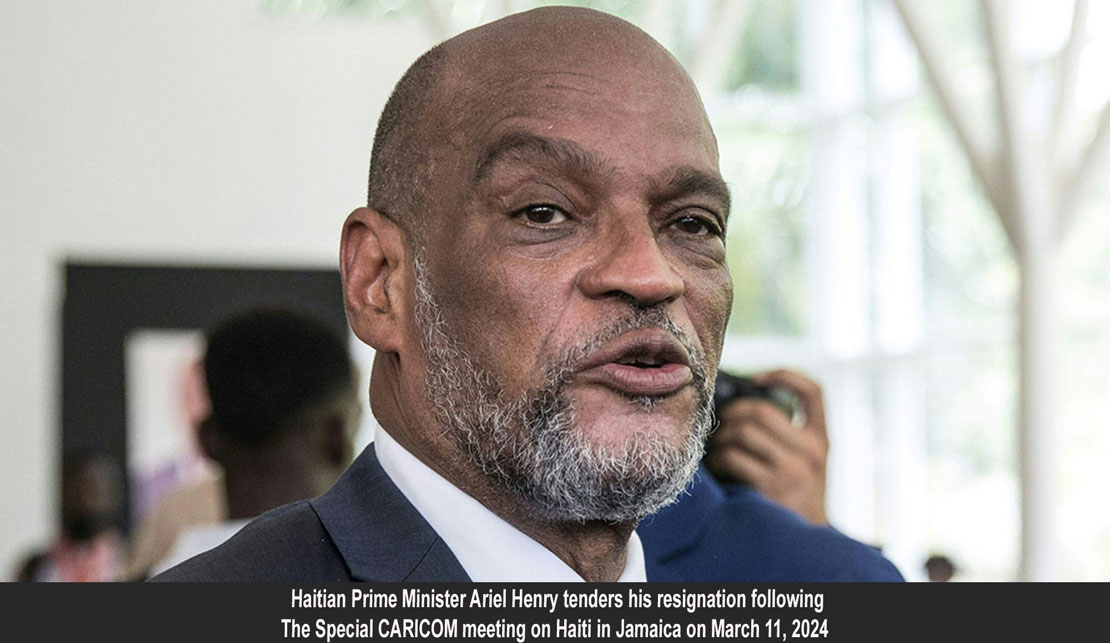 In the midst of this turbulent history, the Transitional Presidential Council in Haiti represents a critical step toward re-establishing order and governance. Following the Kingston Accord, this council has embarked on a challenging journey to mend the fabric of Haitian society.
In the midst of this turbulent history, the Transitional Presidential Council in Haiti represents a critical step toward re-establishing order and governance. Following the Kingston Accord, this council has embarked on a challenging journey to mend the fabric of Haitian society.
The Council will consist of the following persons and organizations:
- Former Sen. Edgard LeBlanc Fils - Collective of Political Parties of January 30
- Former Sen. Louis Gérald Gilles - December 21 Agreement
- Former Amb. Smith Augustin - The EDE/RED/Compromis Historique Coalition
- Former Diaspora Minister Leslie Voltaire - Fanmi Lavalas
- Former Interim PM Fritz Alphonse Jean - The Montana Accord
- Judge Emmanuel Vertilaire - Platform Pitit Desalin Party
- Business person Laurent Saint-Cyr - Private Sector representative
- Pastor Frinel Joseph - Civil Society Non Voting Member
- Agronomist Régine Abraham - Inter-faith community Non Voting Member
The accord ends nearly a month of negotiations to figure out a path for the selection of a new prime minister to replace the resigned Ariel Henry, name a head for the council and form a new government.
The Political Accord developed by the council outlines a roadmap for the nation's recovery, emphasizing the restoration of democratic practices, the strengthening of state institutions, and the urgent need to address the security crisis that impedes daily life in Haiti.
However, the shadow of past failures looms large. The question remains: can this new initiative succeed where others have faltered?
The persistent cycle of violence, political upheaval, and external meddling has undermined Haiti's attempts at self-governance. The case of Father Jean Bertrand Aristide, the only elected president in recent decades, illustrates the complexity of Haiti's political quandaries.
Aristide's presidency, marked by populist support, was twice derailed by coups that many believe were supported by foreign interests uncomfortable with his policies and stance. This pattern of destabilization speaks volumes about the challenges faced by those aspiring to lead Haiti towards a more stable and democratic future.
The narrative of external influence does not end with Aristide. The Transitional Presidential Council now faces the monumental task of navigating the murky waters of international politics, where economic and strategic interests often overshadow the aspirations of a nation striving for autonomy.
As Haiti strives to rebuild, the international community's role, particularly that of organizations and countries with historical ties to the island, will be under scrutiny.
The hope for a renewed Haiti lies not only in the hands of its leaders but also in the support and respect it receives on the global stage.
This exploration into Haiti's plight reveals a complex tapestry of historical grievances, contemporary challenges, and the undying spirit of a people determined to reclaim their dignity and sovereignty.
As we continue to unravel this story, the resilience of Haiti and its people offers a beacon of hope that perhaps, this time, the path forward may lead to lasting change and a brighter future for the nation.
As the narrative of Haiti's struggle for stability and sovereignty unfolds, a critical dimension emerges, underpinning the entire discourse on the nation's future: the imperative of justice and reparations.
"Any genuine effort to permanently solve the crisis in Haiti must be rooted in justice, dignity, and reparations," a principle that resonates deeply within the hearts of Haitians.
This call for reparations is not a plea for charity nor an attempt to claim what is not rightfully Haiti's.
Rather, it is a demand for the rightful utilization of Haiti's resources, including its gold, to serve the needs and aspirations of its primarily black populace.
This stance challenges the historical narrative and the discriminatory practices that have plagued Haiti since the assassination of its founder in 1806.
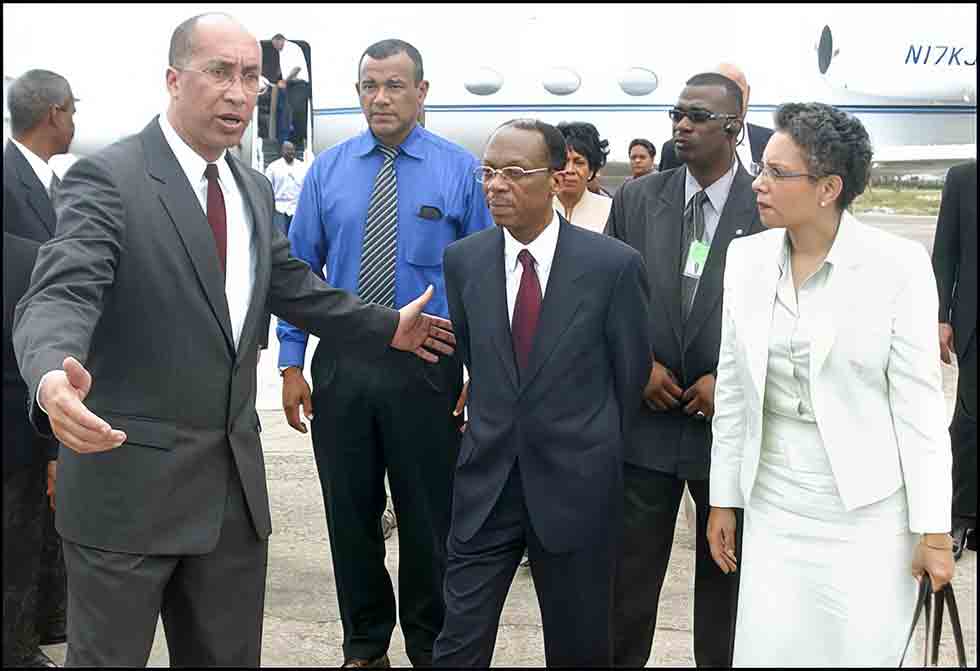
This denial of rights has perpetuated a socio-economic hierarchy where the wealthiest individuals are white, not due to merit, but as a consequence of systemic bias and privilege.
The stark disparity in wealth and opportunity underscores a deeper issue of colorism within Haitian society, where proximity to whiteness often translates into undue privileges.
This reality reflects the urgent need for a re-evaluation of social justice and equity, extending beyond the mere concept of reparations as an external aid.
It calls for a profound transformation within, to address the remnants of abuses that have outlived the revolution.
This discourse on reparations and justice is inserted into the narrative at a juncture where the conversation shifts towards the future, emphasizing that any path forward for Haiti must confront these fundamental issues.
It is a recognition that while international support and a stable governance structure are crucial, the soul of Haiti's revival lies in addressing the injustices rooted in its history and society.
The Haitian revolution, though monumental, left unfinished business in its wake.
The ideals it championed—liberty, equality, and fraternity—remain as relevant today as they were over two centuries ago. Applying these principles not just within Haiti but also in how the world engages with Haiti could set a precedent for a more just and equitable global society.
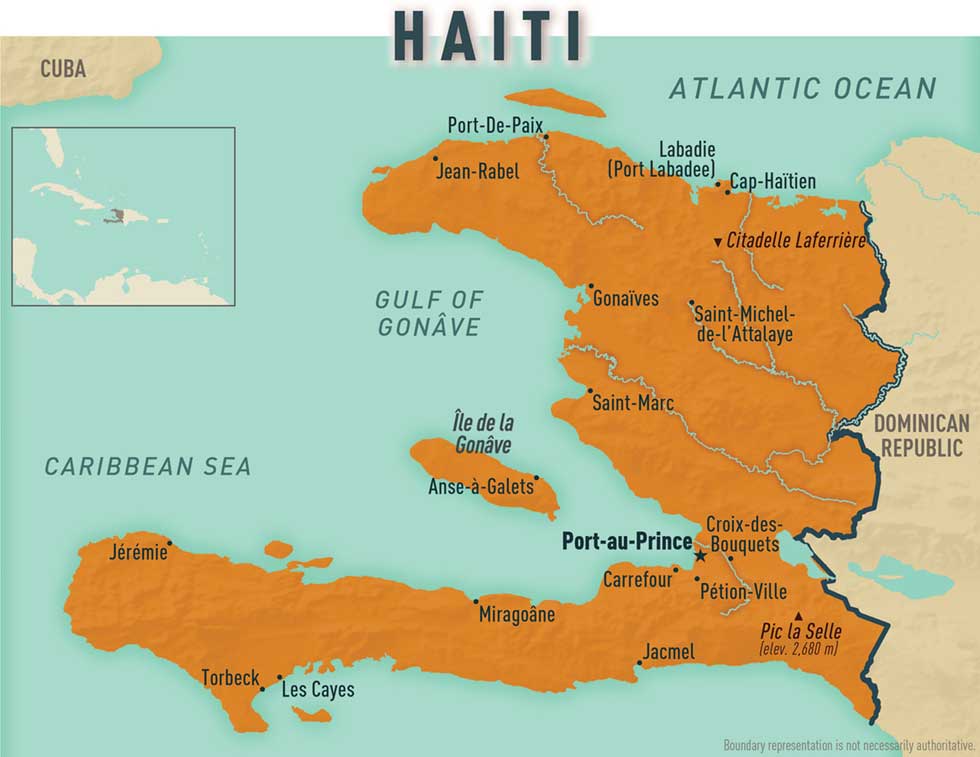 The transitional period under the Presidential Council's guidance, while focusing on immediate concerns like security and institutional functionality, also presents an opportunity to lay the groundwork for long-term social and economic justice.
The transitional period under the Presidential Council's guidance, while focusing on immediate concerns like security and institutional functionality, also presents an opportunity to lay the groundwork for long-term social and economic justice.
As Haiti stands at this crossroads, the global community's role, especially those nations historically intertwined with Haiti's fate, comes into question. Will they support Haiti's journey towards self-determination and justice, or will old patterns of exploitation and neglect resurface?
Haiti's quest for stability, dignity, and sovereignty is deeply interwoven with the struggle for reparations and justice. As the nation endeavors to heal and rebuild, the echoes of its revolutionary past remind us that true freedom comes with the responsibility to right historical wrongs and ensure that the wealth of the land benefits those who toil upon it.
This perspective not only enriches the narrative of Haiti's current socio-political landscape but also casts a light on the broader implications for international relations and human rights.
The story of Haiti, with all its complexities and challenges, thus stands as a testament to the enduring pursuit of justice and the indomitable spirit of its people.
In the labyrinth of Haiti's recovery and the quest for sovereignty, the spotlight on reparations and social justice has illuminated the path to what could be the most significant transformation in the nation’s history.
However, as this narrative unfolds, the enduring challenge of security and the power dynamics within Haiti emerge as critical obstacles to progress.
The presence of gangs, fueled by a complex web of local oligarchs and external interests, has created a state of lawlessness in several areas, severely hindering any efforts toward normalization and reconstruction.
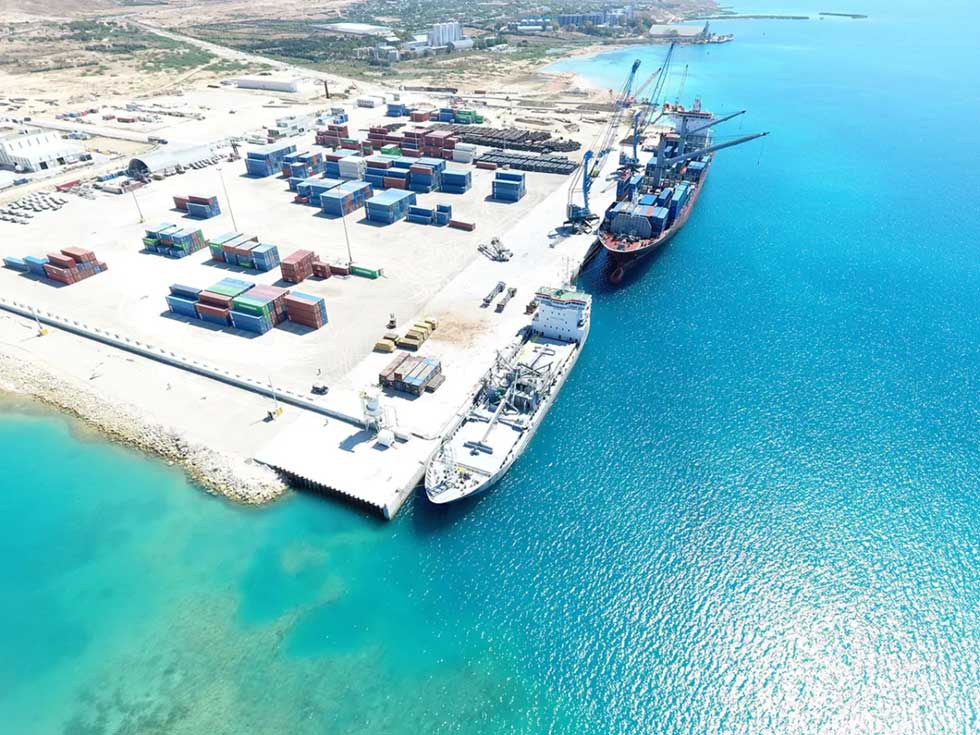
Their dominance in critical regions, particularly in Port-Au-Prince, underlines a sinister cycle of violence and suppression, facilitated by a steady influx of weapons and financial support from both domestic rich families and oligarchs and international entities acting as surrogates for the United States, Canada and France.
This grim reality complicates the mission of the Transitional Presidential Council, which is to restore peace and ensure the safety of its citizens. The intricate relationship between political power, economic control, and gang violence necessitates a multifaceted approach to disarmament and peace-building, one that goes beyond superficial fixes and addresses the root causes of instability.
Amidst these challenges, the Haitian people's resilience shines through. Their demand for a fair and representative electoral process speaks volumes about their commitment to democracy and self-determination.
The skepticism surrounding elections under the current conditions is warranted, given the history of manipulation and foreign interference in Haiti's political affairs.
The insistence on not rushing into elections without addressing the fundamental issues of legitimacy and representation reflects a deep-seated desire for change that truly benefits the Haitian populace.
The international community's role in this pivotal moment cannot be overstated. The past interventions, often under the guise of stabilization and aid, have at times exacerbated Haiti's vulnerabilities rather than alleviating them.
The call for a comprehensive arms embargo and a shift towards genuine support for Haiti's self-led recovery efforts marks a critical juncture in international relations.
It challenges the global powers to reassess their policies and actions in Haiti, pushing for an approach that prioritizes Haitian voices and sovereignty above external interests.
As the narrative of Haiti's quest for justice, dignity, and stability continues, it becomes evident that the road to recovery is fraught with challenges. Yet, it is also a road paved with opportunities for profound societal transformation.
The call for reparations, a fair electoral process, and international solidarity reflects a vision for a new Haiti — one that rises from the ashes of its tumultuous past to forge a future defined by the aspirations of its people. This vision, while ambitious, is not unattainable. It requires a collective commitment to justice, accountability, and mutual respect.
In conclusion, Haiti's story is not just a tale of struggles; it is a beacon of hope for nations striving for self-determination and justice in the face of overwhelming odds.
The resilience of the Haitian people, their unwavering spirit, and their relentless pursuit of a brighter future serve as a powerful reminder of the transformative potential inherent in unity and solidarity.
As Haiti continues on its path toward recovery and sovereignty, the international community's support, grounded in respect for Haiti's autonomy and rights, will be crucial.
The journey ahead is long, but with a steadfast commitment to justice and equity, Haiti can emerge stronger, more stable, and more prosperous than ever before.
-30-
